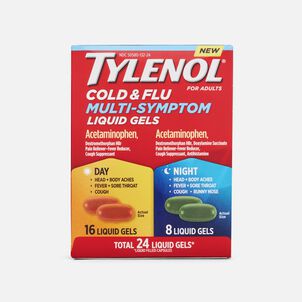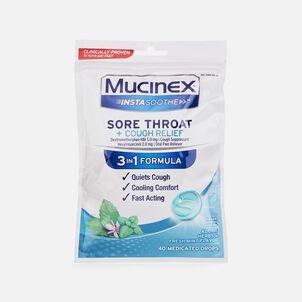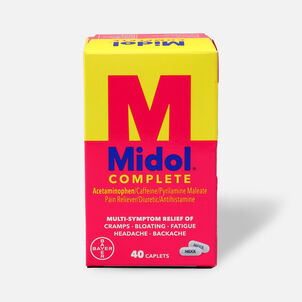 | SHOP NOW
| SHOP NOWHealth care costs for Americans have been skyrocketing. According to projections by the Peter G. Peterson Foundation, total health care spending in the U.S. is forecasted to increase by 5.6% annually for the next decade — faster than the country’s economy. A Health Savings Account (HSA) can help you plan for and beat these rising costs.
An HSA (Health Savings Account) is a tax-free healthcare account used together with an HSA-compatible high-deductible health plan (HDHP) to cover out-of-pocket medical expenses. HSAs serve as both short-term and long-term savings tools. Combined with your HSA-qualified, high-deductible health plan, HSAs give you an easy, safe way to pay less for healthcare expenses today and save more for tomorrow.
Qualified HSAs can be funded by anyone, roll over from one year to the next, and can be used for non-medical expenses without a tax penalty after an account holder reaches the Medicare eligibility age of 65.
This is probably not news to you. Chances are, if you’re reading this, you’re already a proud health savings account holder. Now you need to know how to best contribute to get the most out of your investment, and what the current year’s HSA contribution limits are.
Your HSA belongs entirely to you and can be used to pay for qualified medical expenses for you and your eligible dependents. We’re not even talking about just major medical needs. You can get tax-free savings with your HSA on everyday things like sunscreen, allergy relief products, TENS units, and more! You can contribute to your account, withdraw contributions to pay for HSA eligible medical expenses, and invest your savings in a wide array of financial options—all tax-free.
You can make contributions to your HSA just like you make deposits into your regular savings account, with one big difference: The money you deposit in your HSA is tax-deductible, or can be deposited as a pre-tax payroll deduction if set up through your employer. And an HSA can help you save on taxes in three ways: 1) Annual HSA contributions are tax-free; 2) Interest accrued on HSA balances is not taxable; and 3) Withdrawals for qualified out-of- pocket healthcare expenses are tax-free. An HSA is like a 401(k) for healthcare. However, unlike 401(k)s, HSA contributions made pre-tax through payroll are not subject to Social Security (FICA) or Medicare taxes. HSA withdrawals are not subject to federal income tax as long as they are used for qualified medical expenses – no matter when a withdrawal occurs. Once you reach age 65, you can use HSA funds for non-medical expenses without penalty; but you would have to pay income tax on such withdrawals at their then-current tax rate.
Now that you have a basic understanding, let’s dive a bit deeper into what matters most when planning your HSA contributions. Everyone has yearly health expenses and a lot of those are pretty unexpected. So, the question still remains: how do you decide how much money to put in? We can help.
So, I have an HSA. How do I contribute?
Good news — if your HSA is offered as part of your benefits package through your employer, typically your employer will allow for automatic, tax-free (pre-tax) payroll deductions to contribute to your HSA. This comes in handy each month, so you don't forget to make HSA contributions on your own.
About automatic payroll deductions…
If you're offered an HSA, you can sign up and make your election during your employer's open enrollment period. After you elect, the first step is to choose how much you'd like to set aside for the year. After choosing how much, this amount will be taken out of your paycheck through equal payroll deductions automatically. This money is not taxed, but you'll pay less in total taxes with each paycheck and the full amount can be used on eligible medical products and services.
About manual contributions…
If your employer doesn't allow for tax-free payroll deductions or if you are enrolled in a privately held HSA, you may contribute to your HSA by writing a check or by electronically transferring money. This is a unique feature of HSA as compared to other tax-free healthcare accounts, as it functions very similarly to a personal savings account. Either way, when it comes to depositing funds, your HSA is no different than any other bank account. Plus, since money contributed is tax-free, you can deduct your HSA contributions on your income tax return.
What are my contribution limits for HSAs?
The IRS is the formal governing body for HSAs, and annually establishes contribution limits for the upcoming year. These HSA limits are for total contributions made to your account, including those made by you, your employer, and any other third party.
You're qualified to make contributions if:
- You're enrolled in a qualified HDHP
- Have no other insurance that covers health care expenses without copayments or deductibles having to be paid first (often referred to as "first dollar" coverage)
- You become eligible by December 1 of the current plan year (you can contribute the full amount, but you must remain HSA-eligible for the next 12 months).
If you meet all these requirements, then you may contribute up to the following for 2025:
- $4,300 for an individual
- $8,550 for a family
- Plus, if you're age 55 or older, you may contribute an additional $1,000 as a catch-up contribution each year until you retire.
How much should I contribute to my HSA?
You should always prepare for the unexpected by saving enough money in your HSA to cover your anticipated out-of-pocket medical expenses for the year (including those of your spouse and eligible dependents).
An HSA is one of the most tax-efficient ways to save for qualified medical expenses. Including those you may incur during retirement. If you can afford to save this money for the future, you may want to consider following similar long-term investing strategies as you do for other interest-earning accounts. HSA funds do not expire, and can stay in your account, where they can accrue interest, and can be used at any time. (Just be sure to spend the funds on eligible expenses.) You may also designate a beneficiary for your HSA, so you never have to use the funds if you do not need to or want to.
So, how much do I contribute each year? Each month?
At first, the idea of tax-free HSAs is so great you may feel the need to deposit all your available income, forgetting that you can spend the money only on eligible medical products and services.
The government wants you to contribute to your health savings account, but they don't want you to over contribute, so it has set strict HSA limits on how much you can fund your HSA each year.
An argument for contributing the max…
If you can afford to contribute the maximum, it's a good idea to do so. For starters, your HSA contributions carry over from year to year, so if you end up having low medical expenses for the year and don't spend all your available HSA money, it's still yours. This might come in handy for when you might have a year with higher medical expenses.
You can take your HSA with you if you change jobs. So you don't have to worry about losing your balance if you quit or get laid off or fired. And if you do find yourself between jobs and without health insurance, or paying expensive COBRA premiums, your HSA can help reduce healthcare expenses during that transition. The more you contribute, the more your HSA balance can grow when you put it in an interest-bearing account or invest it.
And, any gains are yours to keep, tax-free. This growth helps your HSA balance increase faster than a standard savings account — sort of like a 401(k) of healthcare savings. While most HSAs will earn a standard interest rate over time, account holders can also invest these funds through a bank or investment firm into a variety of securities like mutual funds, stocks, bonds, and more.
While some of these options may require a fee to invest, they typically will help HSA funds grow far faster than standard interest rates.
An argument for contributing less than the max…
If contributing the max isn't right for your budget, consider contributing at least as much to your HSA as the amount of your insurance deductible. This way, you know you'll be able to cover your medical expenses for the year before your coinsurance kicks in, and you'll be paying for those expenses with tax-free dollars.
You should also contribute less than the maximum if…
There's a strong chance you will need the money for something that isn't a qualified medical expense. In this case, put that money in a standard savings account, rather than an HSA.
If you don't, and you have to withdraw the money from your HSA to pay for, say, car repairs, you'll pay a penalty of 20%. And if you made the contribution with tax-free dollars, you'll also be required to pay income tax on the amount you withdrew to use for a non-qualified reason. That seems like a lot to pay for your own money, so plan wisely! However, once you reach the age of 65 (Medicare eligibility) the 20% tax penalty will disappear and you can withdraw your HSA funds to be used on anything, they will just be taxed as regular income if you spend them on something other than an HSA eligible health expense.
An argument for changing the amount month-to-month…
If you're particularly good with estimating and budgeting, and you have a HSA that allows for varied month-to-month contributions, it might be best for you to determine what your healthcare expenses will be, and contribute that amount each month. For example: If you know summer is when your family has all their checkups and orthodontic work, make a few calls to determine pricing of these visits and contribute appropriately.
Employer HSA contributions
Your employer can choose to boost the amount in your HSA through its own contributions that are not considered part of your income. In other words, let's say your company boosts its contribution to your HSA by $1,000. This money isn't considered part of your payroll deduction, but it still counts towards the HSA limit, so you need to budget your contributions the right way, to make sure you don't exceed the max.
Self employed?
If you're self-employed (for example, a sole-proprietor, a partner in the company you work for, or a shareholder who owns more than 2% of the stock in a company), you're generally not eligible for any employer contribution. Owners can contribute to an HSA, but contributions can only be made on an after-tax basis, and cannot be deducted at the end of the year.
And if I’m currently unemployed?
Let's get to the best news for unemployed HSA holders. If you contributed to your health savings account prior to losing your job, you will see why it's so helpful. One of the HSA's best benefits is that it allows you to use your funds to pay for certain health insurance premiums — something you can't do when employed, since premiums are not considered qualified medical expenses.
To qualify for this unemployment benefit, you must be receiving federal/state unemployment insurance or paying for COBRA or other medical continuation coverage. If so, your health insurance premiums while unemployed are considered qualified medical expenses. In essence, you could contribute to your HSA for six months, lose your job, and use those contributions to pay for your health insurance for the next six months, all tax-free. It is great peace of mind to know if you have a bad stretch, your health insurance payments are covered by your tax-free HSA contributions.
A good strategy is to build your HSA so that the account could cover six months of health insurance after a job loss. When you continue coverage that limits your total financial responsibility.
Examining HSA limits
The bottom line on how much you can put into your health savings account each year is that you cannot put in more than the annual maximum contribution. Increases in contribution limits in future years are linked to inflation. If you need to make changes and prorate contributions, your employer must allow you to make changes to your contribution at least once per month.
Can I contribute too much?
It's crazy to think you can "save too much," but if you've exceeded the max HSA contribution, these funds must be removed from your HSA before the tax filing deadline — usually everyone's favorite day, April 15. If you don't, these excess funds become part of your taxable income. That doesn't seem so bad, until you realize they are subject to a 6% tax, which compounds each year you don't pay. So, if you've gone over for the year, and still want that money set aside for your HSA, simply move that money to another account, then reinvest it the following plan year.
Accelerating your savings for 55+
Aging presents a lot of opportunities including the ability to play catch-up with your HSA:
- If you're 55 or older and not enrolled in Medicare (the federal program that provides basic health benefits to people aged 65 or older), you can contribute up to an additional $1,000 to your HSA - often referred to as a "catch-up amount"; these additional contributions are a way to help your HSA keep pace with your age
- If you're enrolled in an HDHP for the whole year, you can add the entire catch-up amount regardless of where your birthday falls within the year
- If you had HDHP coverage for only part of the year, you have to prorate the catch-up amount
- Once you turn 65 years of age, your HSA is freed up substantially; you are free to spend your HSA funds on whatever you want, not just qualified medical expenses; note that any distribution for non-qualified medical expenses will be taxed (just like ordinary income), but at least you are getting the funds out of your HSA
And when should I do this?
You can make your annual HSA contribution in one lump sum or in a series of payments throughout the year. You can't make deposits to your HSA for any given tax year before the first day of the following year, but you can make them up until the day you file your federal income tax return for that year (without extensions) — this is similar to other retirement accounts like an IRA.
For example, for the current tax year, you can make contributions to your HSA all the way through to the tax filing deadline (typically April 15th the following year). Just make sure that the financial institution or insurance company your HSA is invested with knows to record your April 15 deposit as a prior-year contribution.
If you qualify, an HSA is an easy and smart way to pay for qualified medical expenses for you and your dependents. With its tax-advantages, easy access to savings, and growth potential, it’s an effective savings vehicle that provides benefits today and in the future.
As always, the information provided in this article should not be considered legal or tax advice. Please consult a licensed professional for appropriate advice given your individual situation
-
Thank you for visiting the HSA Store Learning Center! Don’t forget to follow us for more helpful tips on Facebook, Instagram, and X (formerly Twitter).


.png)
















